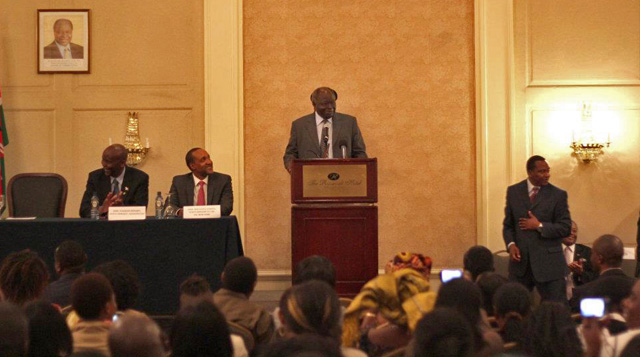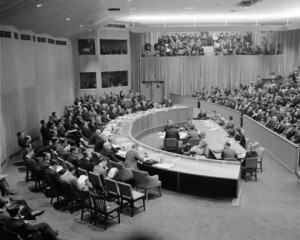UN Addresses Chaos in Kenya

By Sheilla Akwara
President of Kenya Mwai Kibaki urged the annual United Nations summit to provide more aid to address the devastation caused by drought and famine in his region. The famine, which is the worst in 60 years, has caused Somali, Ethiopian and Sudanese refugees to flee to the Kenyan border. Presently 3.7 million people urgently need humanitarian assistance, and a further 8 million people from Ethiopia and Kenya need help as well. This is overwhelming Kenyan relief efforts. “Kenya is currently receiving up to 2,000 refugees per day,” said Kibaki. “This situation is placing a lot of pressure on refugee camps and related social services as well as on the host communities.”
The theme for this year’s assembly was “the role of mediation in the settlement of disputes by peaceful means,” a particularly relevant topic after a series of conflicts, killings and rape claims in the Horn of Africa, due to the famine and drought. The United Nations has 193 members from countries around the world and each year from September through November, their representatives meet to discuss international issues and ways to resolve them. The United Nations (UN) was founded in 1945 to replace the League of Nations. The first meeting of the UN Security Council took place at the Bronx campus of Hunter College in 1946. That campus is now Lehman College.
The UN believes that droughts do not have to cause a crisis in Kenya and that early intervention can save lives.The summit came up with short-term and long-term solutions to address the issues of drought and famine. Some of these solutions are using irrigated land to provide water instead of relying on rain alone, utilizing drought resistant crops, and supporting the increase of pastoral production by providing water, disease free zones and improving breeding services. In addition, President Kibaki requested support to contain the volatile situation in Somalia, Kenya’s eastern neighbor. The instability, said Kibaki, is spilling over into Kenya and causing significant suffering.
The UN believes that droughts do not have to cause a crisis in Kenya and that early intervention can save lives.The summit came up with short-term and long-term solutions to address the issues of drought and famine. Some of these solutions are using irrigated land to provide water, instead of relying on rain alone, utilizing drought resistant crops, and supporting the increase of pastoral production by providing water, disease free zones and improving breeding services. In addition, President Kibaki requested support to contain the volatile situation in Somalia, Kenya’s eastern neighbor. The instability, said Kibaki, is spilling over into Kenya and causing significant suffering.
While popular in Kenya, the president has come under fire for the heavy-handed behavior of his wife. During his stay in New York City, Kibaki hosted a meet and greet with the Kenyan diaspora at The Roosevelt Hotel, where he charmed them with his easy smile and glad-handing. Among the attendees were various Kenyans from the city, along with politicians and ambassadors.

